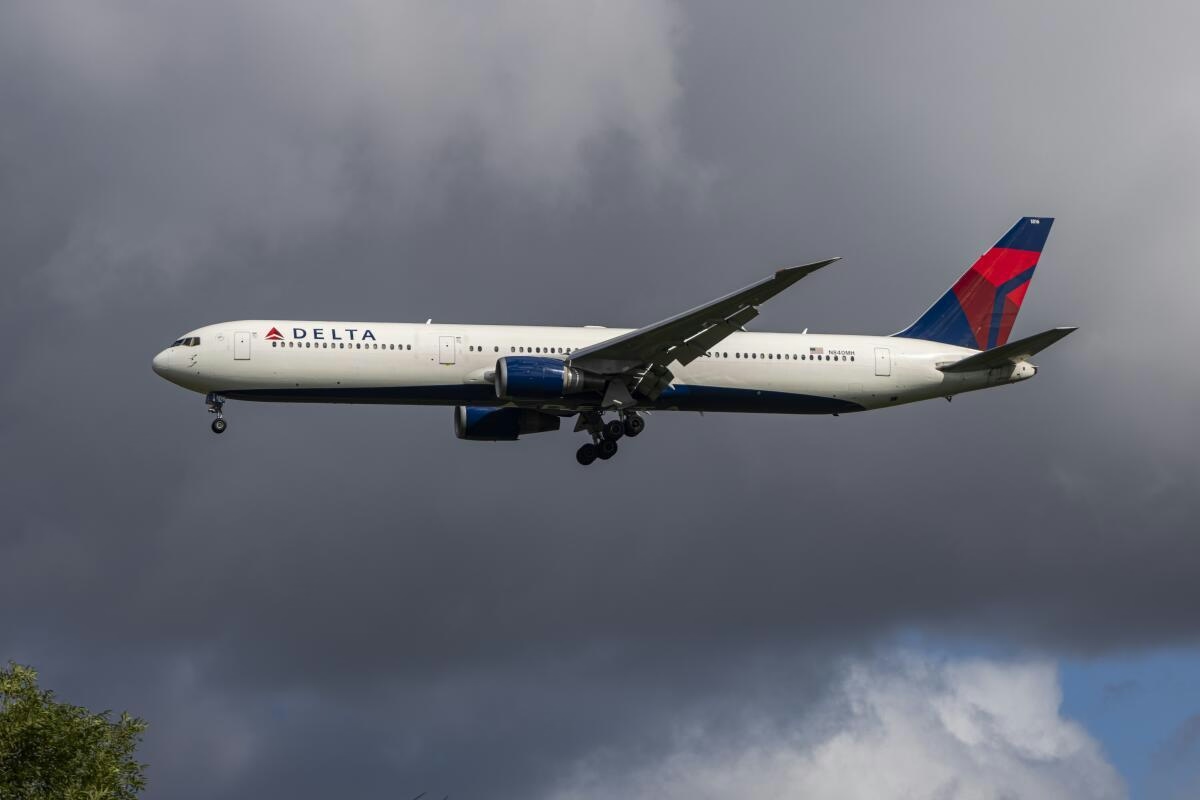エアロジニー — あなたのインテリジェントな副操縦士。
現在のトレンド
Categories
Delta Flight Returns After Engine Sparks

Delta Flight Returns to Atlanta Following Engine Sparks During Takeoff
A Delta Air Lines flight bound for Sacramento was compelled to return to Atlanta’s Hartsfield-Jackson International Airport after sparks and flames were observed emanating from one of its engines during takeoff. The incident transformed what should have been a routine departure into a tense emergency, testing the crew’s emergency protocols and the passengers’ composure.
Engine Fire Sparks Emergency Response
Shortly after liftoff, passengers witnessed visible sparks and flames from one of the aircraft’s engines during the critical initial climb phase, a moment when engine performance is vital. The alarming sight was clearly visible from the cabin, prompting immediate concern among those on board. Aviation safety experts emphasize that any visible engine irregularity during takeoff necessitates swift investigation and decisive action.
Modern commercial aircraft are equipped with multiple safety systems and redundancies designed to handle engine malfunctions. Nevertheless, pilots are trained to treat any indication of fire or sparks with the utmost seriousness. Given the flight’s proximity to Atlanta, the crew opted to return promptly to the airport rather than continue the cross-country journey with a potentially compromised engine.
Coordinated Emergency Procedures Ensure Safe Landing
Delta’s flight crew quickly initiated emergency return protocols, prioritizing passenger safety above all else. Air traffic controllers at Hartsfield-Jackson were immediately informed, enabling them to clear the airspace and prepare emergency response teams on the ground. This coordinated effort between the flight crew and airport operations minimized risk and facilitated a safe landing.
Flight attendants, extensively trained for emergency situations, played a crucial role in managing passenger concerns and maintaining calm throughout the ordeal. The successful emergency landing highlights the effectiveness of aviation safety systems and the rigorous training crews undergo to handle engine-related incidents. While commercial aircraft are designed to operate safely on a single engine if necessary, visible flames demand immediate and decisive action.
Implications for Delta and the Aviation Industry
Although no injuries were reported, the incident presents challenges for Delta Air Lines beyond the immediate emergency. The airline now faces the task of addressing passenger concerns and cooperating with regulatory authorities investigating the engine malfunction. High-profile incidents of this nature can temporarily affect passenger confidence, potentially influencing travelers’ choice of carrier.
Competitors, including United Airlines, may seek to leverage Delta’s operational setback by emphasizing their own safety records and reliability through targeted marketing campaigns. Industry analysts observe that airlines often respond to rivals’ difficulties by reassuring customers of their commitment to safety and operational excellence.
Aviation Safety Remains a Priority
Engine-related incidents, while unsettling, occur within a comprehensive framework of aviation safety protocols developed over decades. Airlines adhere to stringent maintenance schedules and inspection procedures designed to prevent such occurrences. The swift and coordinated response in this case underscores the industry’s dedication to passenger safety. As investigations continue, Delta will be under pressure to reassure both regulators and the traveling public of its ongoing commitment to safe operations.

Emirates Unveils Cabin Design for New Boeing 777X

Eighteen Years On, the Airbus A380 Remains Central to a $34 Billion Airline

How a boom in luxury airline seats is slowing down jet deliveries

Navitaire Outage Attributed to Planned Maintenance

DigiYatra Debuts Outside Aviation at India AI Impact Summit

Vietnam Orders Strengthen Boeing’s Commercial Outlook

Airbus Signals Uncertainty Over Future A400M Orders

JobsOhio Awards $2 Million Grant to Hartzell Propeller for Innovation Center

Collins Aerospace Tests Sidekick Autonomy Software on YFQ-42A for U.S. Air Force CCA Program

How the Airbus A350-1000 Compares to the Boeing 777
